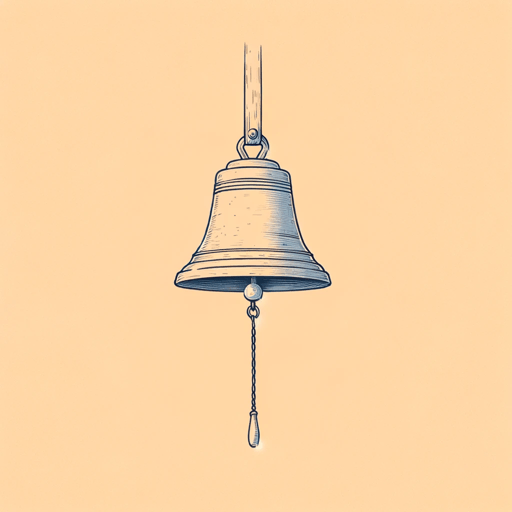44 pages • 1 hour read
James HiltonGoodbye, Mr. Chips
Fiction | Novella | YA | Published in 1934A modern alternative to SparkNotes and CliffsNotes, SuperSummary offers high-quality Study Guides with detailed chapter summaries and analysis of major themes, characters, and more.
Summary and Study Guide
Overview
Goodbye, Mr. Chips, James Hilton’s novella about a mild-mannered teacher at a fictional British boys’ school, originally appeared in 1933 as a supplement to the British Weekly, an evangelical newspaper. Its popularity, however, led to its reprinting in the April 1934 issue of the American magazine Atlantic Monthly and later, its publication as a book by Little, Brown and Company in the US and by Hodder & Stoughton in the United Kingdom. An instant bestseller, Hilton’s novella ran through many editions in both countries. In 1939, it was made into a critically well-received film starring Robert Donat, who won the Academy Award for his portrayal of Mr. Chips. In 1969, Peter O’Toole and Petula Clark starred in a musical version of the story, which received Oscar nods for its score and O’Toole’s performance.
James Hilton (1900-1954), whose father was headmaster of a boys’ school near London, wrote several other bestsellers, including Lost Horizon (1933) and Random Harvest (1941). In 1943, he was awarded an Oscar for the screenplay for Mrs. Miniver, a film which, like Goodbye, Mr. Chips, celebrates quiet English virtues. Hilton reportedly based the character of Mr. Chips on his father and on William Henry Balgarnie, a master of The Leys School, a public school in Cambridge that Hilton attended. Through its third-person limited omniscient narration, which does not stray from Mr. Chips’s thoughts and memories, Hilton’s novel explores themes of perseverance, courage, dedication, emotional growth, institutional change, and loss.
This guide refers to the 2013 Important Books paperback edition of Goodbye, Mr. Chips.
Content Warning: The source material contains antisemitic comments and brief references to corporal punishment in a learning institution (“thrashing,” probably with a cane), practiced by the main character, a teacher.
Plot Summary
Mr. Chippings, a retired classics teacher, looks back on the rich “pageant” of his life, which has long been inseparable from Brookfield, the fictional English public school where he taught for almost 50 years. Chippings, known affectionately to his students as Mr. Chips, joined the Brookfield faculty in 1870 at the age of 22 after a rough year at a more progressive school called Melbury. Brookfield, though a “second rank” school, quickly became Chips’s cherished home; even now, long into retirement, he still measures his days by the school’s bells, which he can hear from his rented room just across the street. Now in his eighties, Chips still acquaints himself with Brookfield’s new students and masters, often hosting them for tea, along with “old boys” from years past. Renowned for his kindness, capacious memory, and offbeat sense of humor, Chips has become a beloved institution unto himself.
Ambitious in his youth, Chips soon resigns himself to a modest career as a classics teacher rather than as a headmaster or academic. In middle age, he begins to succumb to the “dry rot” of his repetitious job, settling into a workaday rut—until he meets his future wife Katherine, a spirited young woman two decades younger than himself. A “modern woman” whose progressive politics and tastes are, in theory, anathema to his own, she soon changes his every notion about “radicals” and women. After their wedding, Katherine joins Chips at Brookfield as a sort of school matron, and over the next two years, her liberalism and compassion temper his reflexive strictness and conservatism. Beyond that, his love for her infuses his teaching with a new passion, inventiveness, and humor, making him finally loved by his students. Katherine dies in childbirth, along with their child, barely a year into their marriage.
After his wife’s death, Chips, at 50, joins the ranks of the “old,” but his venerable status now gives him license to be more “himself”: eccentric, easy-going, and whimsically humorous. Soon, he is one of the most beloved figures at Brookfield. However, one of his few dissenters is Ralston, the “modern” new headmaster, who tries to cajole Chips into retiring at age 60 on the grounds that his teaching methods and personal habits are antiquated and unkempt. Brookfield’s faculty and old-boy network side overwhelmingly with Chips, ensuring that he stays as long as he likes.
In 1913, at 65, Chips finally retires but soon agrees to return during the Great War at the bequest of the new headmaster to help fill in for masters who have enlisted. One evening, lecturing through a terrifying bombing raid, he calms his students with the gentle example of his own courage, serenity, and humor. When the headmaster, Chatteris, dies, Chips becomes Acting Head for the duration of the war. Every Sunday, reading aloud the lists of the old boys slain in action, Chips cannot help tearing up for he can still see all their faces in his mind. On Armistice Day, Chips is roundly celebrated for his service, and he returns to retirement in his rented room across the street, where he continues to keep a hand in Brookfield affairs: writing articles, editing the school directory, and leading the Old Boys’ Club. However, he catches a “chill” at the Armistice Day service and thenceforth never feels quite healthy.
Finally, in November 1933, shortly after hosting a new Brookfield boy for tea, he sinks into a final decline. Hearing the ghostly “choruses” of boys’ names from years past singing in his head, he rallies “his boys” to gather around him one last time for a final joke and farewell. The next morning, the school reels over the news of his death. The little boy Chips hosted the day before never forgets how he told him “Goodbye, Mr. Chips” just before Chips died.


